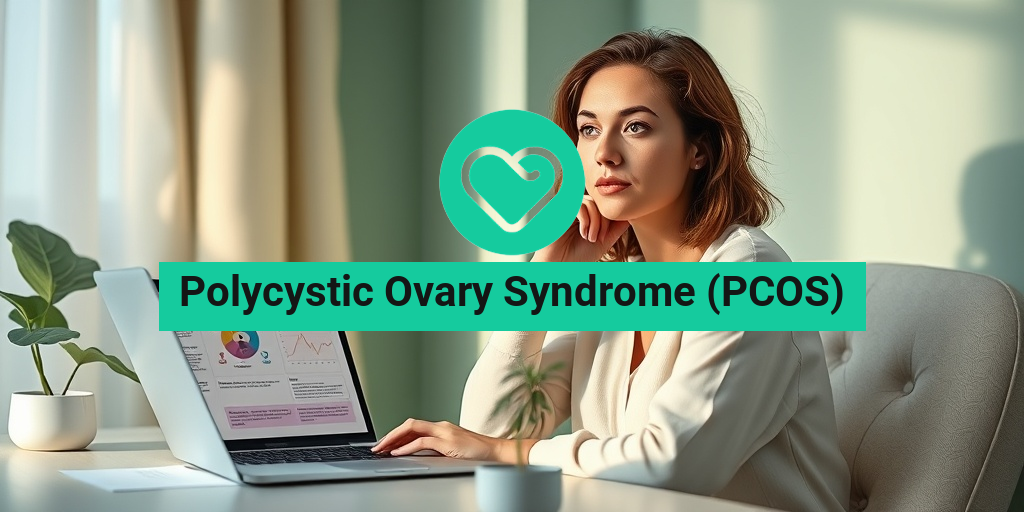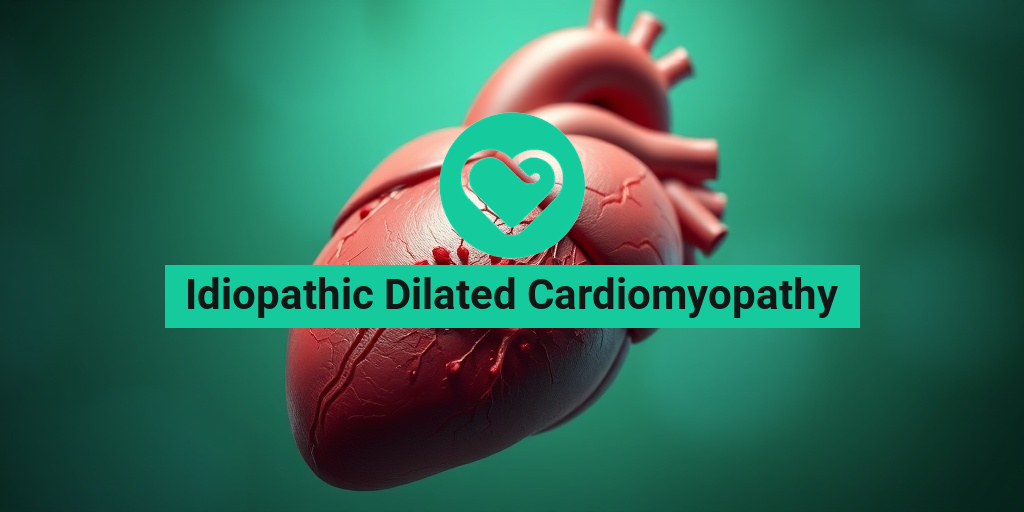What Is PCOS?
Polycystic Ovary Syndrome (PCOS) is a common hormonal disorder that affects people with ovaries, particularly during their reproductive years. It is characterized by a combination of symptoms that can vary widely from person to person. The condition is named for the numerous small cysts that can form on the ovaries, although not everyone with PCOS will have these cysts.
PCOS is often associated with an imbalance of hormones, particularly an excess of androgens (male hormones), which can lead to various health issues. The exact cause of PCOS is still not fully understood, but it is believed to involve a combination of genetic, environmental, and lifestyle factors.
Understanding PCOS is crucial, as it can have significant implications for a person’s health, including their menstrual cycle, fertility, and overall well-being. If you suspect you may have PCOS, it’s essential to consult a healthcare provider for a proper diagnosis and treatment options.
PCOS Definition and Diagnosis
The definition of PCOS encompasses a range of symptoms and diagnostic criteria. According to the Rotterdam criteria, a diagnosis of PCOS can be made if a person meets at least two of the following three criteria:
- Irregular or absent menstrual cycles: This can manifest as infrequent periods or prolonged cycles.
- Excess androgen levels: This can be determined through blood tests that measure hormone levels.
- Polycystic ovaries: An ultrasound may reveal enlarged ovaries with multiple small cysts.
It’s important to note that not everyone with PCOS will have all these symptoms, and some may experience symptoms that are not directly related to the ovaries. Early diagnosis and management can help mitigate the long-term health risks associated with PCOS.
PCOS Symptoms
The symptoms of Polycystic Ovary Syndrome (PCOS) can vary significantly among individuals, making it a complex condition to identify. Here are some of the most common symptoms associated with PCOS:
Menstrual Irregularities
One of the hallmark symptoms of PCOS is irregular menstrual cycles. This can include:
- Infrequent periods (fewer than eight periods a year)
- Prolonged cycles (more than 35 days between periods)
- Heavy bleeding during periods
Excess Androgen Levels
Many individuals with PCOS experience symptoms related to elevated androgen levels, which can include:
- Hirsutism: Excessive hair growth on the face, chest, and back.
- Acne: Persistent acne that may not respond to typical treatments.
- Oily skin: Increased oiliness can lead to skin issues.
Weight Gain and Insulin Resistance
Weight gain is another common symptom of PCOS, with many individuals experiencing difficulty losing weight. This can be linked to insulin resistance, where the body’s cells do not respond effectively to insulin, leading to higher blood sugar levels. This condition can increase the risk of developing type 2 diabetes.
Fertility Issues
PCOS can also impact fertility, making it more challenging for individuals to conceive. The hormonal imbalances associated with PCOS can disrupt ovulation, leading to irregular or absent ovulation. If you are trying to conceive and suspect you have PCOS, it’s essential to seek guidance from a healthcare provider.
Other Symptoms
In addition to the symptoms mentioned above, individuals with PCOS may also experience:
- Thinning hair or male-pattern baldness
- Dark patches of skin, particularly in areas like the neck or underarms
- Fatigue and mood swings
Recognizing the symptoms of PCOS is the first step toward effective management. If you are experiencing any of these symptoms, consider reaching out to a healthcare professional for a comprehensive evaluation and personalized treatment plan. Resources like Yesil Health AI (yesilhealth.com) can provide valuable, evidence-based health answers to help you navigate your journey with PCOS. 🌼

PCOS Causes
Polycystic Ovary Syndrome (PCOS) is a complex hormonal disorder that affects many women of reproductive age. Understanding the causes of PCOS is crucial for effective management and treatment. While the exact cause remains unclear, several factors are believed to contribute to the development of this condition.
Genetic Factors
Research suggests that genetics play a significant role in the onset of PCOS. If you have a family history of PCOS or related conditions, your risk of developing the syndrome increases. Studies indicate that certain genes may predispose individuals to hormonal imbalances that characterize PCOS.
Hormonal Imbalances
Women with PCOS often experience an imbalance in hormones, particularly an increase in androgens (male hormones). This hormonal disruption can lead to various symptoms, including irregular menstrual cycles, acne, and excessive hair growth. The interplay between insulin resistance and hormonal levels is also a critical factor in the development of PCOS.
Insulin Resistance
Many women with PCOS exhibit insulin resistance, which means their bodies do not respond effectively to insulin. This condition can lead to higher insulin levels, which may contribute to weight gain and exacerbate hormonal imbalances. Insulin resistance is often linked to obesity, making weight management an essential aspect of PCOS treatment.
Environmental Factors
While genetics and hormonal factors are significant, environmental influences cannot be overlooked. Factors such as diet, lifestyle, and exposure to endocrine-disrupting chemicals may also play a role in the development of PCOS. A diet high in processed foods and sugars can worsen insulin resistance, while a sedentary lifestyle may contribute to weight gain.
PCOS Risk Factors
Identifying the risk factors for PCOS can help in early diagnosis and management. While not every woman with these risk factors will develop PCOS, being aware of them can lead to proactive health measures.
Obesity
Obesity is one of the most significant risk factors associated with PCOS. Women with a higher body mass index (BMI) are more likely to experience insulin resistance, which can exacerbate the symptoms of PCOS. Maintaining a healthy weight through diet and exercise can significantly improve symptoms and overall health.
Age
PCOS can occur at any age, but it is most commonly diagnosed in women in their late teens to early 30s. The hormonal changes that occur during puberty and the reproductive years can trigger the onset of PCOS symptoms. Early diagnosis and intervention are crucial for managing the condition effectively.
Family History
A family history of PCOS or related conditions, such as type 2 diabetes or metabolic syndrome, increases the likelihood of developing PCOS. If your mother or sister has been diagnosed with PCOS, it’s essential to monitor your health and discuss any concerns with your healthcare provider.
Irregular Menstrual Cycles
Women who experience irregular or absent menstrual cycles are at a higher risk of developing PCOS. These irregularities can be an early sign of hormonal imbalances and should be evaluated by a healthcare professional. Tracking your menstrual cycle can provide valuable information for diagnosis.
Other Health Conditions
Certain health conditions, such as endometriosis, can coexist with PCOS, complicating diagnosis and treatment. Women with PCOS may also be at a higher risk for developing conditions like type 2 diabetes, high blood pressure, and heart disease. Regular check-ups and screenings are vital for managing these risks.
In conclusion, understanding the causes and risk factors of PCOS is essential for effective management and treatment. By recognizing these elements, women can take proactive steps toward better health and well-being. 🌸

PCOS Diagnosis
Polycystic Ovary Syndrome (PCOS) is a common hormonal disorder that affects many women of reproductive age. Diagnosing PCOS can be challenging due to its varied symptoms and the overlap with other conditions. Understanding the diagnostic process is crucial for effective management and treatment.
Understanding the Symptoms
The first step in diagnosing PCOS is recognizing its symptoms. Women with PCOS may experience a range of signs, including:
- Irregular Menstrual Cycles: This can manifest as infrequent periods, prolonged cycles, or even missed periods.
- Excess Androgen Levels: Symptoms may include acne, excessive hair growth (hirsutism), and male-pattern baldness.
- Polycystic Ovaries: An ultrasound may reveal enlarged ovaries with multiple small cysts.
- Weight Gain: Many women with PCOS struggle with weight management, which can exacerbate symptoms.
Diagnostic Criteria
To diagnose PCOS, healthcare providers often use the Rotterdam criteria, which requires at least two of the following three features:
- Irregular or absent ovulation
- Clinical or biochemical signs of hyperandrogenism
- Polycystic ovaries visible on ultrasound
Additionally, doctors may conduct blood tests to measure hormone levels, including testosterone and insulin, as well as a pelvic ultrasound to assess the ovaries. It’s essential to rule out other conditions that may mimic PCOS, such as thyroid disorders or adrenal gland disorders.
Importance of Early Diagnosis
Early diagnosis of PCOS is vital for managing symptoms and reducing the risk of long-term complications, such as type 2 diabetes, heart disease, and infertility. If you suspect you have PCOS, consult a healthcare provider who can guide you through the diagnostic process and discuss potential treatment options. 🩺
PCOS Treatment Options
Once diagnosed, managing Polycystic Ovary Syndrome (PCOS) involves a combination of lifestyle changes and medical treatments tailored to individual symptoms and health goals. Here’s a closer look at the various treatment options available.
Lifestyle Modifications
For many women, lifestyle changes can significantly improve symptoms of PCOS. Consider the following:
- Healthy Diet: A balanced diet rich in whole foods, lean proteins, and healthy fats can help manage weight and insulin levels. Foods with a low glycemic index (GI) are particularly beneficial.
- Regular Exercise: Engaging in regular physical activity can help reduce insulin resistance, promote weight loss, and improve overall health. Aim for at least 150 minutes of moderate exercise each week.
- Weight Management: Even a modest weight loss of 5-10% can lead to significant improvements in symptoms and hormonal balance.
Medications
In addition to lifestyle changes, several medications can help manage PCOS symptoms:
- Hormonal Birth Control: Birth control pills can regulate menstrual cycles, reduce androgen levels, and improve acne and hirsutism.
- Metformin: This medication is often prescribed to improve insulin sensitivity and can help with weight management and ovulation.
- Anti-androgens: Medications like spironolactone can help reduce excessive hair growth and acne by blocking the effects of androgens.
Fertility Treatments
For women with PCOS who are trying to conceive, fertility treatments may be necessary. Options include:
- Ovulation Induction: Medications such as clomiphene citrate or letrozole can stimulate ovulation.
- In Vitro Fertilization (IVF): In cases where other treatments are unsuccessful, IVF may be recommended.
It’s essential to work closely with a healthcare provider to determine the best treatment plan for your specific needs. Remember, managing PCOS is a journey, and finding the right combination of treatments can lead to improved health and well-being. 🌼

PCOS Lifestyle Changes
Polycystic Ovary Syndrome (PCOS) is a common hormonal disorder that affects many women of reproductive age. While medical treatments are available, making certain lifestyle changes can significantly improve symptoms and overall health. Here are some effective lifestyle changes to consider:
1. Healthy Eating Habits
Adopting a balanced diet is crucial for managing PCOS. Focus on whole foods that are rich in nutrients and low in processed sugars. Here are some dietary tips:
- Increase Fiber Intake: Foods high in fiber, such as fruits, vegetables, and whole grains, can help regulate insulin levels and improve digestion.
- Choose Low Glycemic Index Foods: Opt for foods that have a low glycemic index (GI) to help manage blood sugar levels. Examples include legumes, nuts, and non-starchy vegetables.
- Limit Processed Foods: Reduce your intake of processed foods, sugary snacks, and beverages, as they can exacerbate insulin resistance.
2. Regular Physical Activity
Exercise plays a vital role in managing PCOS symptoms. Regular physical activity can help with weight management, improve insulin sensitivity, and boost mood. Aim for at least 150 minutes of moderate-intensity exercise each week. Here are some effective forms of exercise:
- Aerobic Exercises: Activities like walking, jogging, cycling, and swimming can help burn calories and improve cardiovascular health.
- Strength Training: Incorporating strength training exercises at least twice a week can help build muscle mass and improve metabolism.
- Yoga and Mindfulness: Practices like yoga can reduce stress and improve hormonal balance, which is beneficial for women with PCOS.
3. Weight Management
For many women with PCOS, maintaining a healthy weight can alleviate symptoms and reduce the risk of complications. Even a modest weight loss of 5-10% can lead to significant improvements in hormonal balance and menstrual regularity. Consider the following strategies:
- Set Realistic Goals: Aim for gradual weight loss through sustainable changes rather than quick fixes.
- Monitor Portion Sizes: Being mindful of portion sizes can help control calorie intake without feeling deprived.
- Stay Hydrated: Drinking plenty of water can aid in digestion and help manage hunger.
4. Stress Management
Stress can exacerbate PCOS symptoms, making stress management techniques essential. Here are some effective methods:
- Meditation: Practicing mindfulness meditation can help reduce stress and improve emotional well-being.
- Deep Breathing Exercises: Simple breathing techniques can help calm the mind and body.
- Engage in Hobbies: Spending time on activities you enjoy can provide a much-needed break from daily stressors.
PCOS Complications
While PCOS is primarily known for its reproductive health implications, it can also lead to various complications if left unmanaged. Understanding these potential complications is crucial for women with PCOS:
1. Infertility
One of the most significant concerns for women with PCOS is infertility. The hormonal imbalances associated with PCOS can disrupt ovulation, making it challenging to conceive. However, with appropriate treatment and lifestyle changes, many women can improve their chances of pregnancy.
2. Metabolic Syndrome
Women with PCOS are at a higher risk of developing metabolic syndrome, a cluster of conditions that increase the risk of heart disease, stroke, and diabetes. This syndrome includes:
- High Blood Pressure: Elevated blood pressure can strain the heart and blood vessels.
- High Blood Sugar Levels: Insulin resistance is common in PCOS, leading to higher blood sugar levels.
- Abnormal Cholesterol Levels: Women with PCOS may have higher levels of LDL (bad cholesterol) and lower levels of HDL (good cholesterol).
3. Endometrial Cancer
Women with PCOS may have irregular menstrual cycles, leading to prolonged exposure to estrogen without progesterone. This imbalance can increase the risk of endometrial hyperplasia and, subsequently, endometrial cancer. Regular monitoring and management of menstrual health are essential.
4. Mental Health Issues
PCOS can also impact mental health, leading to conditions such as anxiety and depression. The emotional toll of dealing with symptoms like weight gain, acne, and hair loss can be significant. Seeking support from mental health professionals can be beneficial.
5. Sleep Apnea
Women with PCOS are at a higher risk of developing sleep apnea, a condition characterized by interrupted breathing during sleep. This can lead to daytime fatigue and other health issues. If you experience symptoms like loud snoring or excessive daytime sleepiness, consult a healthcare provider.
In conclusion, understanding and managing Polycystic Ovary Syndrome (PCOS) through lifestyle changes and awareness of potential complications can empower women to take control of their health. By making informed choices, women can improve their quality of life and reduce the risk of associated health issues. 🌼

Frequently Asked Questions about Polycystic Ovary Syndrome (PCOS)
What is Polycystic Ovary Syndrome (PCOS)?
Polycystic Ovary Syndrome (PCOS) is a hormonal disorder common among women of reproductive age. It is characterized by irregular menstrual cycles, excess androgen levels, and polycystic ovaries. This condition can lead to various health issues, including infertility, metabolic syndrome, and diabetes.
What are the common signs of PCOS?
- Irregular or missed periods
- Excess hair growth on the face and body (hirsutism)
- Acne and oily skin
- Weight gain or difficulty losing weight
- Thinning hair or male-pattern baldness
- Dark patches of skin (acanthosis nigricans)
How is PCOS diagnosed?
Diagnosis of Polycystic Ovary Syndrome (PCOS) typically involves a combination of the following:
- Medical history review
- Physical examination
- Blood tests to check hormone levels
- Ultrasound to examine the ovaries
What are the treatment options for PCOS?
Treatment for Polycystic Ovary Syndrome (PCOS) may include:
- Lifestyle changes such as diet and exercise
- Medications to regulate menstrual cycles
- Hormonal contraceptives to manage symptoms
- Medications for insulin resistance
- Fertility treatments if pregnancy is desired
Can PCOS affect fertility?
Yes, Polycystic Ovary Syndrome (PCOS) can affect fertility due to irregular ovulation. Women with this condition may have difficulty conceiving, but many can achieve pregnancy with appropriate treatment and lifestyle changes.
Is there a link between PCOS and endometriosis?
While Polycystic Ovary Syndrome (PCOS) and endometriosis are distinct conditions, they can coexist in some women. Both conditions can cause similar symptoms, such as pelvic pain and irregular periods, making diagnosis challenging.
What lifestyle changes can help manage PCOS?
Managing Polycystic Ovary Syndrome (PCOS) often involves lifestyle changes, including:
- Maintaining a healthy weight
- Eating a balanced diet rich in whole foods
- Regular physical activity
- Managing stress through mindfulness or yoga
Can PCOS lead to other health issues?
Yes, women with Polycystic Ovary Syndrome (PCOS) are at a higher risk for several health issues, including:
- Type 2 diabetes
- Heart disease
- High blood pressure
- Endometrial cancer
Where can I find support for PCOS?
Support for Polycystic Ovary Syndrome (PCOS) can be found through various resources, including:
- Support groups and online communities
- Healthcare providers specializing in women’s health
- Educational websites and organizations focused on PCOS
If you have more questions about Polycystic Ovary Syndrome (PCOS), consult with a healthcare professional for personalized advice and support. 🌼




